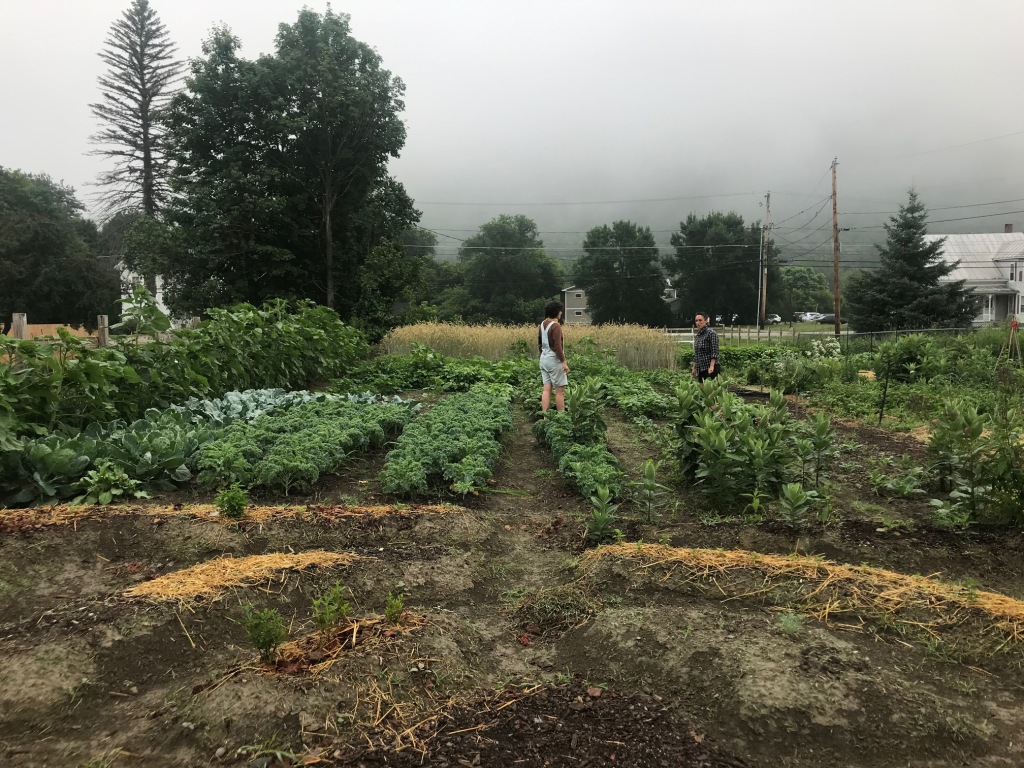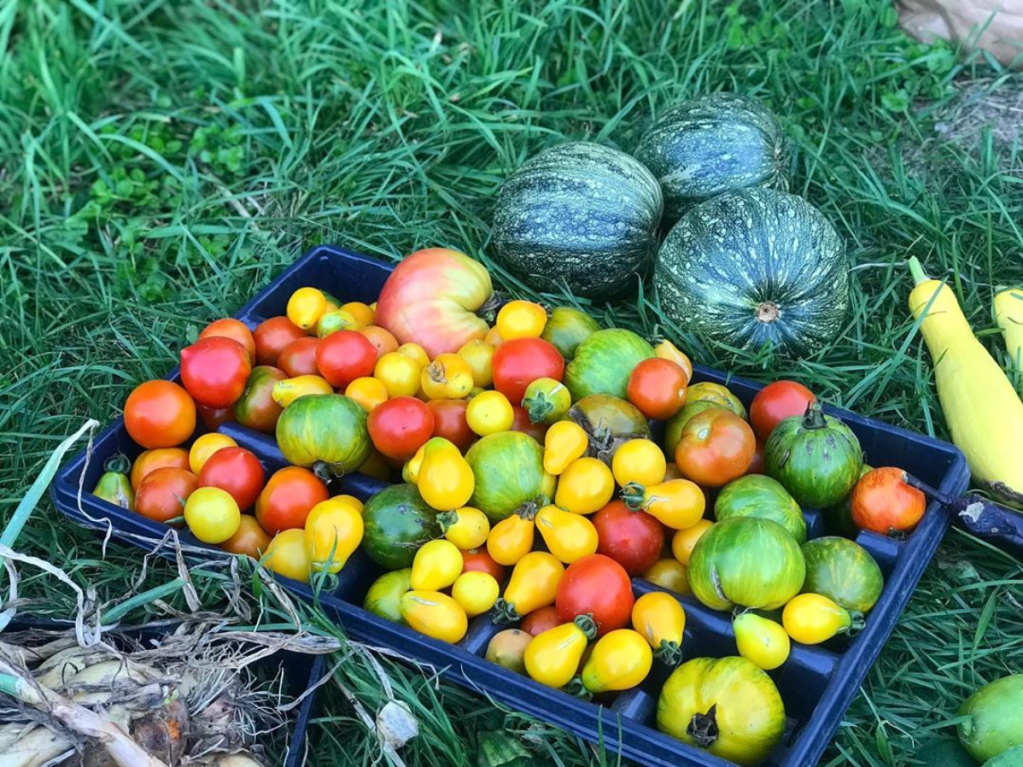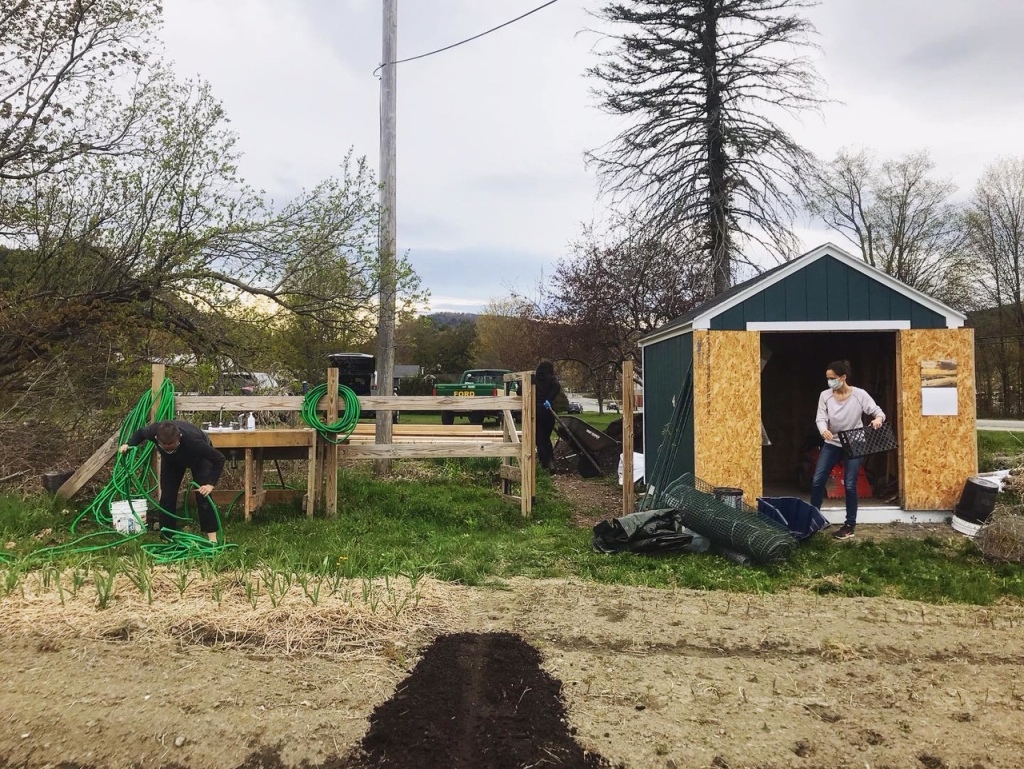
By Kirsten Williams, Staff Writer
Just past White River Valley High lies a 9,000 square foot garden that is open to all who wish to use it. At the South Royalton Community Garden harvest season is already here, in the shadow of COVID-19.
Caroline Gordon, originally from Germany, moved to South Royalton to pursue an LLM in Food & Agriculture Law. Before coming to Vermont, she practiced biodynamic farming for years in Berlin. While in school, Gordon noticed that the Garden was left unplanted for two straight seasons. She graduated in early 2019 with an idea to help cultivate the open space collectively.

Gordon teamed up with Ellie Shermann, who has years of expertise in farm management, and Megan Fuerst, who took on administrative and communications tasks for the Garden. Shermann and Fuerst shared the collective farming because it would simplify the garden’s management.
“So many of us – environmentalists, law students, people who care about food access – have aspirations of having a big garden,” said Fuerst. “The conventional wisdom is to find resources online, watch videos, figure it out on your own and have a garden. It’s intimidating for a lot of people! This is a way to break down that barrier and make gardening accessible.”
The early months of the pandemic spurred a burst of self-sufficiency. People sought to supplement their pantries in their spare time. Some got into sourdough bread baking, others learned to make jam, and many began growing their own food.

Inspired by the Victory Garden era, a national non-profit called Green America tracks gardens across the U.S. that are dedicated to using sustainable gardening practices, so-called “Climate Victory Gardens.” Victory Gardens were planted during WWI and WWII in response to the severe global food shortages which resulted from agricultural workers being recruited for military service. At the time, nearly 20 million small gardens produced upwards of 40 percent of the fresh fruit and vegetables consumed in the U.S.
The Garden is proud to be a registered Climate Victory Garden.
“It’s become so evident that being outside, as a means to be together, in a socially distant way, and doing something that makes us more resilient – it’s so empowering, and it fills us with purpose,” said Gordon.

Food insecurity in rural Vermont is a serious issue. The town of South Royalton’s poverty rate is 18.4 percent. “Many of our low-income neighbors’ diets rely on what’s available at our local food shelf,” wrote Fuerst on the Garden’s Instagram page. “We donate crop surpluses to the food shelf every Thursday morning to combat the nutritious consequences of poverty through increased access to healthy, organic & whole foods.”
“It’s a ‘sharing is caring’ kind of thing,” said Gordon. “Having that food access component where we can share our harvest with the community and recognizing that we need a cultural shift to make gardening a recreational, fun thing.”
“There is such a need to atone to a very localized food supply chain,” added Fuerst. “One thing that COVID has done, perhaps for the benefit of humanity, is to really wake people up to how fragile our food system is, when it is so industrialized and centralized.” She emphasized the important role community gardens play in creating local food systems, as they provide opportunities for people who want to garden but who may not have the time or space at home.

All are “welcome at the Garden, all the time.” Community members can join in on regular communal gardening hours every Monday and Thursday from 4:30-7:00pm, until October. Follow the Garden on Facebook and Instagram for more information!
